In today’s tech-driven world, car scanner diagnostic tools have become essential for both car owners and professional mechanics. These powerful devices provide insights into a vehicle’s health, empowering users to diagnose and potentially fix issues, saving time and money. This comprehensive review explores the world of car scanner diagnostic tools, covering everything from their functionality and benefits to choosing the right one for your needs.
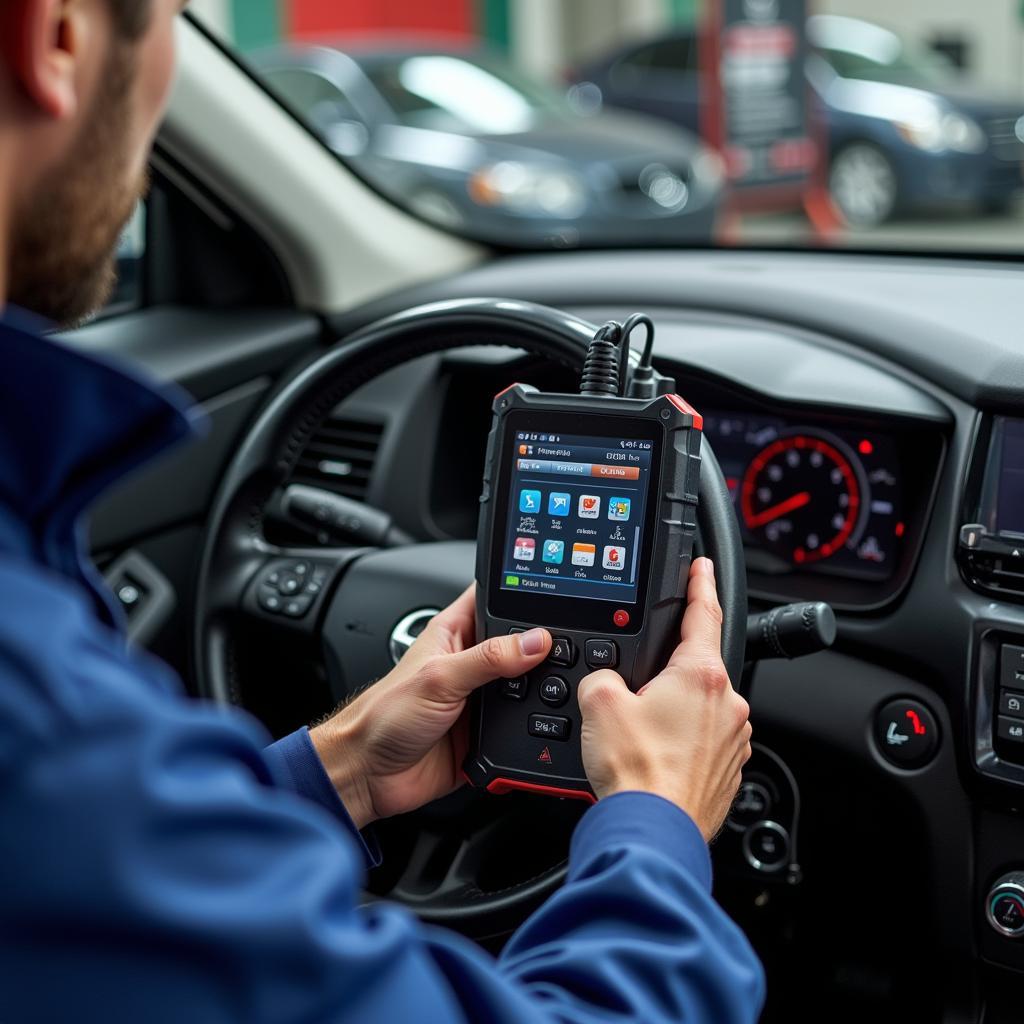 Car Scanner Diagnostic Tool in Action
Car Scanner Diagnostic Tool in Action
Understanding Car Scanner Diagnostic Tools: What Do They Do?
Car scanner diagnostic tools, also known as OBD2 scanners, connect to your vehicle’s onboard computer system through the OBD2 port (usually located under the dashboard). They work by retrieving diagnostic trouble codes (DTCs) stored in the car’s computer, which indicate malfunctions within various systems.
These codes act like a secret language, revealing what’s wrong with your car. A car diagnostic tool acts as the translator, converting these codes into understandable terms.
The Benefits of Owning a Car Diagnostic Tool
Investing in a car diagnostic tool offers a range of benefits for both car enthusiasts and everyday drivers:
- Early Problem Detection: Detect minor issues before they escalate into major repairs, saving you from costly breakdowns and headaches.
- Cost Savings: Identify problems yourself and potentially avoid expensive mechanic fees for simple diagnoses.
- Improved Vehicle Performance: Monitor engine performance, fuel efficiency, and other vital parameters to ensure optimal vehicle health.
- Greater Control and Transparency: Understand your car’s condition and make informed decisions about maintenance and repairs.
- DIY Empowerment: For the mechanically inclined, a car diagnostic tool can be a gateway to performing your own repairs and maintenance.
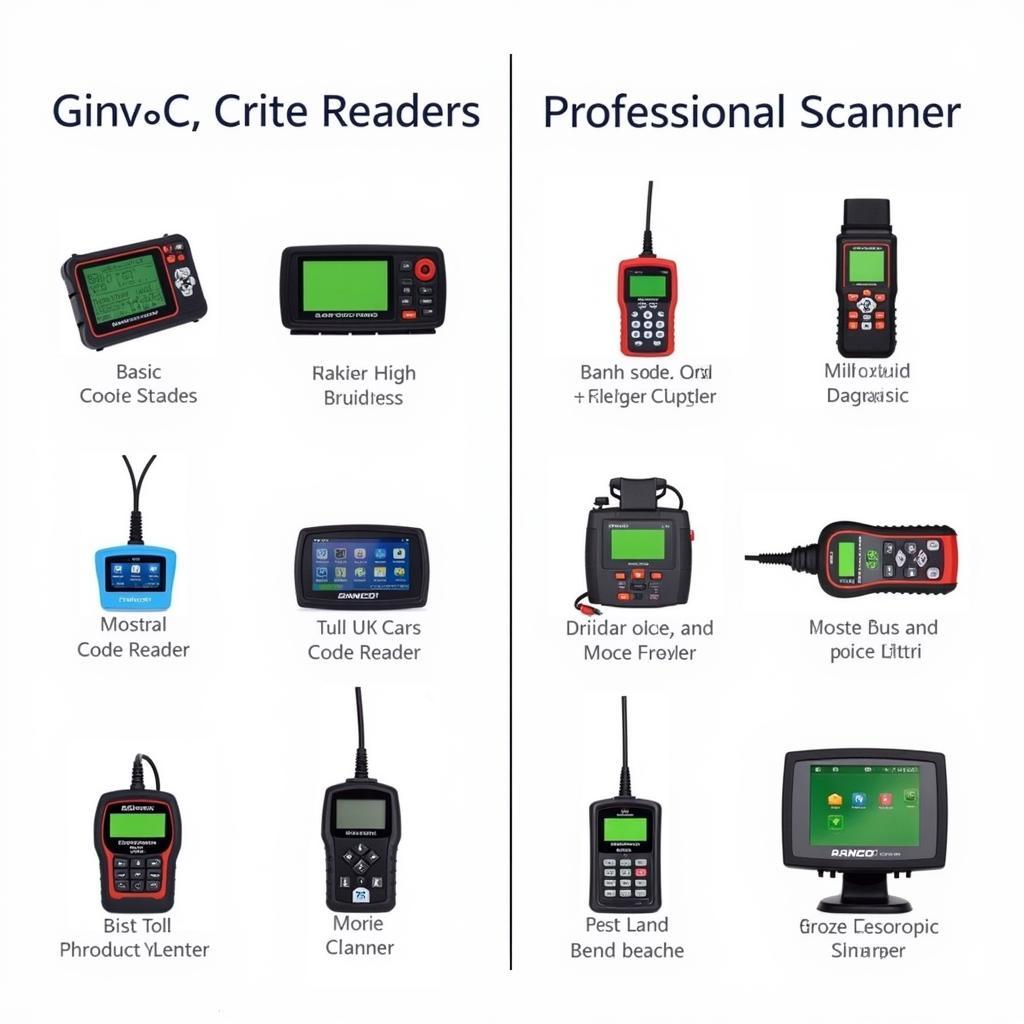 Different Types of Car Diagnostic Tools
Different Types of Car Diagnostic Tools
Types of Car Scanner Diagnostic Tools
The market offers a diverse range of car diagnostic tools, each catering to different needs and budgets. Here’s a breakdown of the most common types:
- Code Readers: Basic tools that read and display DTCs. Ideal for budget-conscious users who primarily need to identify error codes.
- OBD2 Scanners: More advanced than code readers, offering additional features like live data streaming, freeze frame data, and emissions readiness checks.
- Professional-Grade Scanners: Used by mechanics and workshops, these sophisticated tools offer comprehensive diagnostic capabilities, including advanced programming and coding functions.
Choosing the Right Car Scanner Diagnostic Tool
With so many options available, selecting the right car diagnostic tool can be overwhelming. Consider these factors to make an informed decision:
- Vehicle Compatibility: Ensure the tool supports your car’s make, model, and year.
- Features: Determine which features are essential for your needs, such as live data, ABS diagnostics, or airbag system access.
- User Friendliness: Opt for a tool with an intuitive interface, clear instructions, and easy-to-understand data presentation.
- Budget: Set a budget range and explore tools that offer the best value for your money.
“Investing in the right car diagnostic tool is like having a personal mechanic on hand, providing peace of mind and empowering you to make informed decisions about your vehicle.” – John Smith, Senior Automotive Engineer at CARW Workshop.
Key Features to Look For
When comparing different car scanner diagnostic tools, pay attention to these key features:
- Live Data Streaming: View real-time sensor data, such as engine RPM, coolant temperature, and oxygen sensor readings, to monitor performance and diagnose issues.
- Freeze Frame Data: Access a snapshot of the vehicle’s sensor readings at the time a fault code was triggered, providing valuable insights into the cause of the problem.
- ABS and Airbag System Diagnostics: Check for faults in the Anti-lock Braking System (ABS) and Supplemental Restraint System (SRS) for enhanced safety diagnostics.
- Bi-Directional Control: This advanced feature allows you to command certain vehicle components, like turning on the fuel pump or activating solenoids, for more comprehensive testing and troubleshooting.
Free vs. Paid Car Scanner Diagnostic Tools
The market offers both free and paid car diagnostic tools. While free application scanning tools can be a good starting point for basic diagnostics, they often have limitations in functionality and data access. Paid tools, on the other hand, offer a wider range of features, more accurate data, and typically provide better support.
Car Scanner Diagnostic Tools: Beyond Diagnostics
Modern car diagnostic tools are evolving beyond just reading codes and displaying data. They are increasingly integrating with smartphones and tablets, offering:
- Wireless Connectivity: Connect to your tool wirelessly via Bluetooth or WiFi for greater convenience and mobility.
- Mobile Apps: Access user-friendly apps that provide real-time data visualization, customizable dashboards, and even maintenance reminders.
- Cloud Storage: Store diagnostic reports, vehicle history, and other important data securely in the cloud for easy access and sharing.
Conclusion
Car scanner diagnostic tools have revolutionized the way we interact with and maintain our vehicles. From basic code readers to sophisticated professional scanners, these tools empower car owners and mechanics alike with the knowledge and capabilities to diagnose and address car problems efficiently.
When choosing a car diagnostic tool, carefully consider your needs, budget, and desired features. Whether you’re a DIY enthusiast or a professional mechanic, investing in the right tool can save you time, money, and unnecessary headaches in the long run.
For expert advice on selecting the perfect car scanner diagnostic tool for your needs, contact CARW Workshop at +1 (641) 206-8880 or visit our office at 4 Villa Wy, Shoshoni, Wyoming, United States.


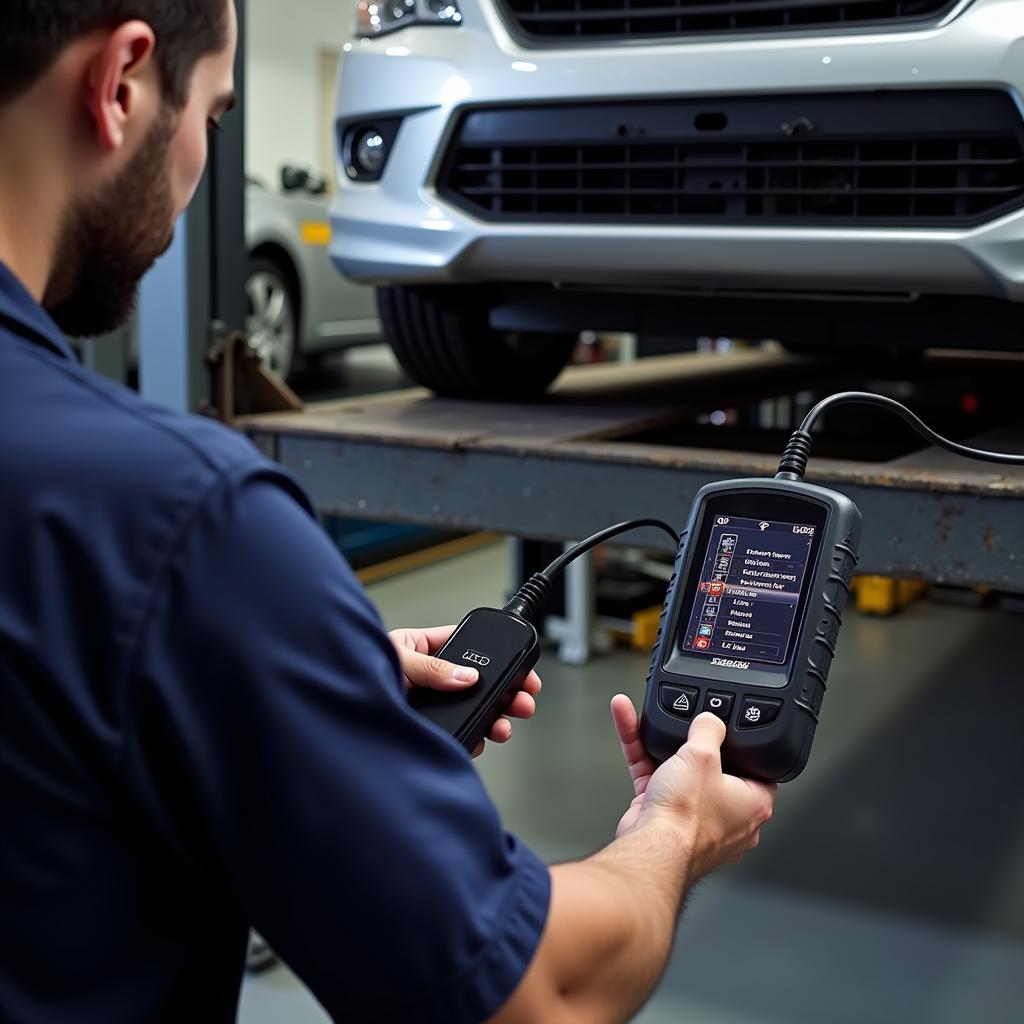
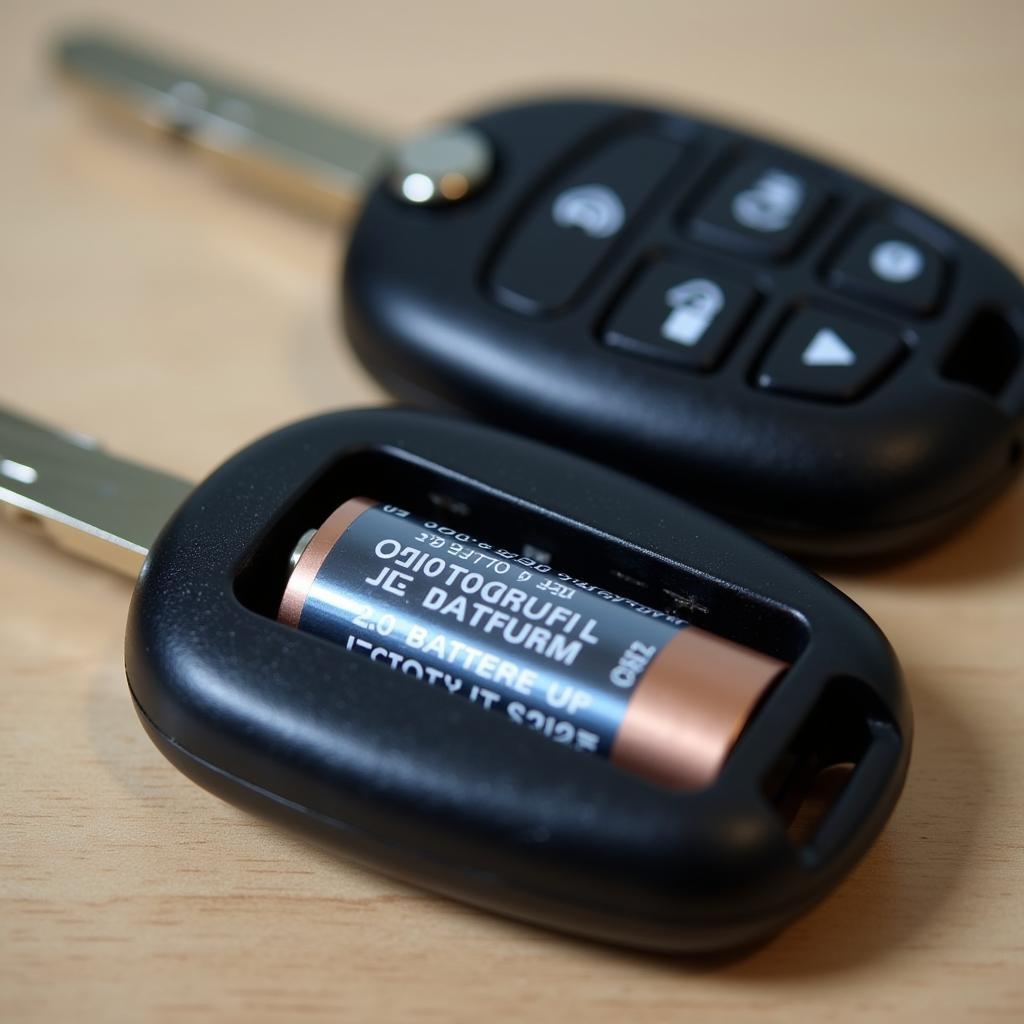
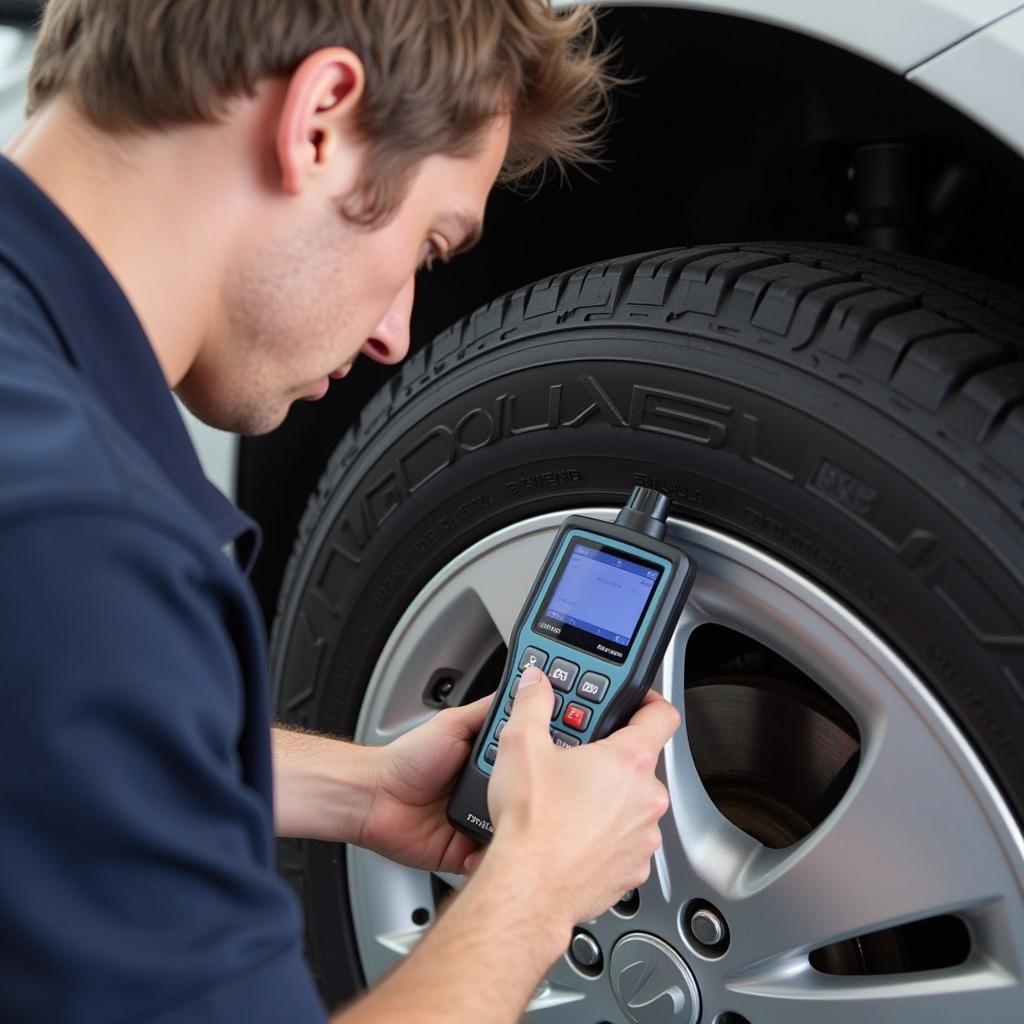
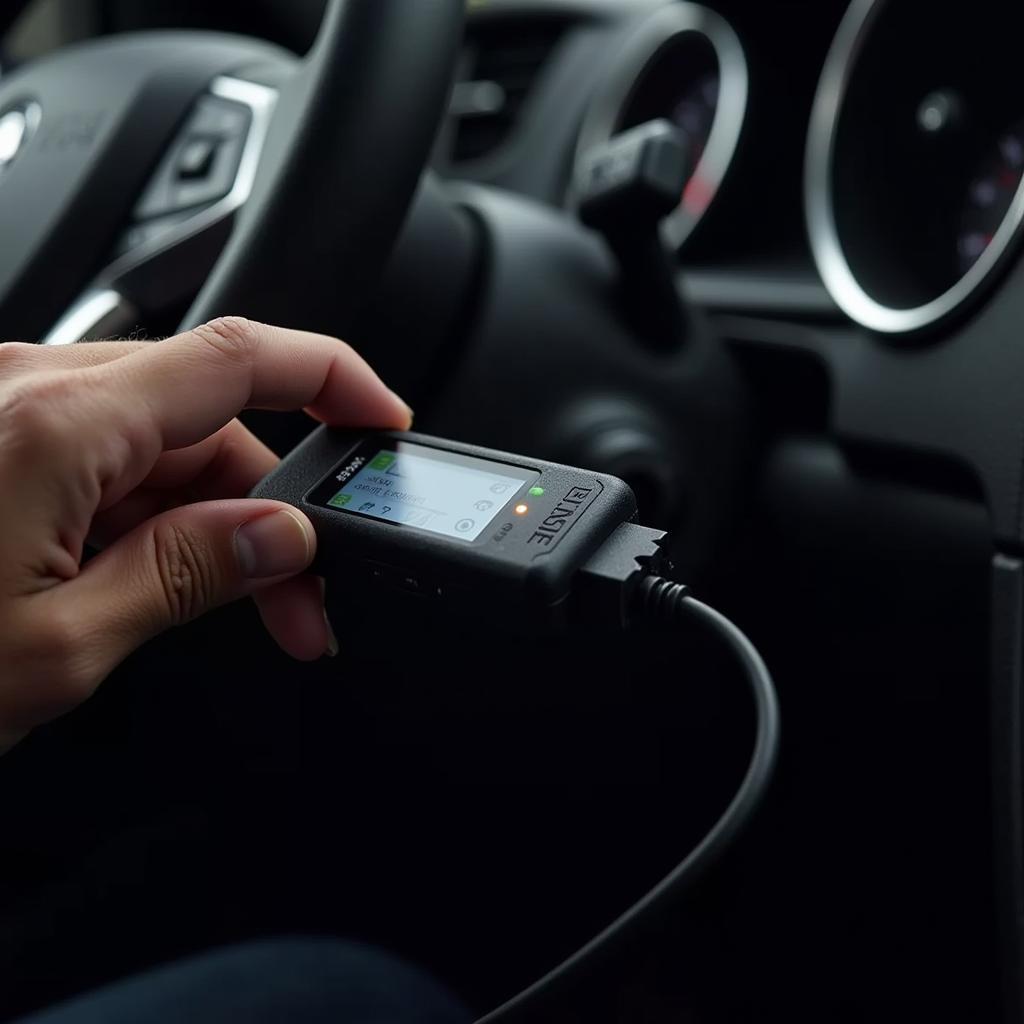
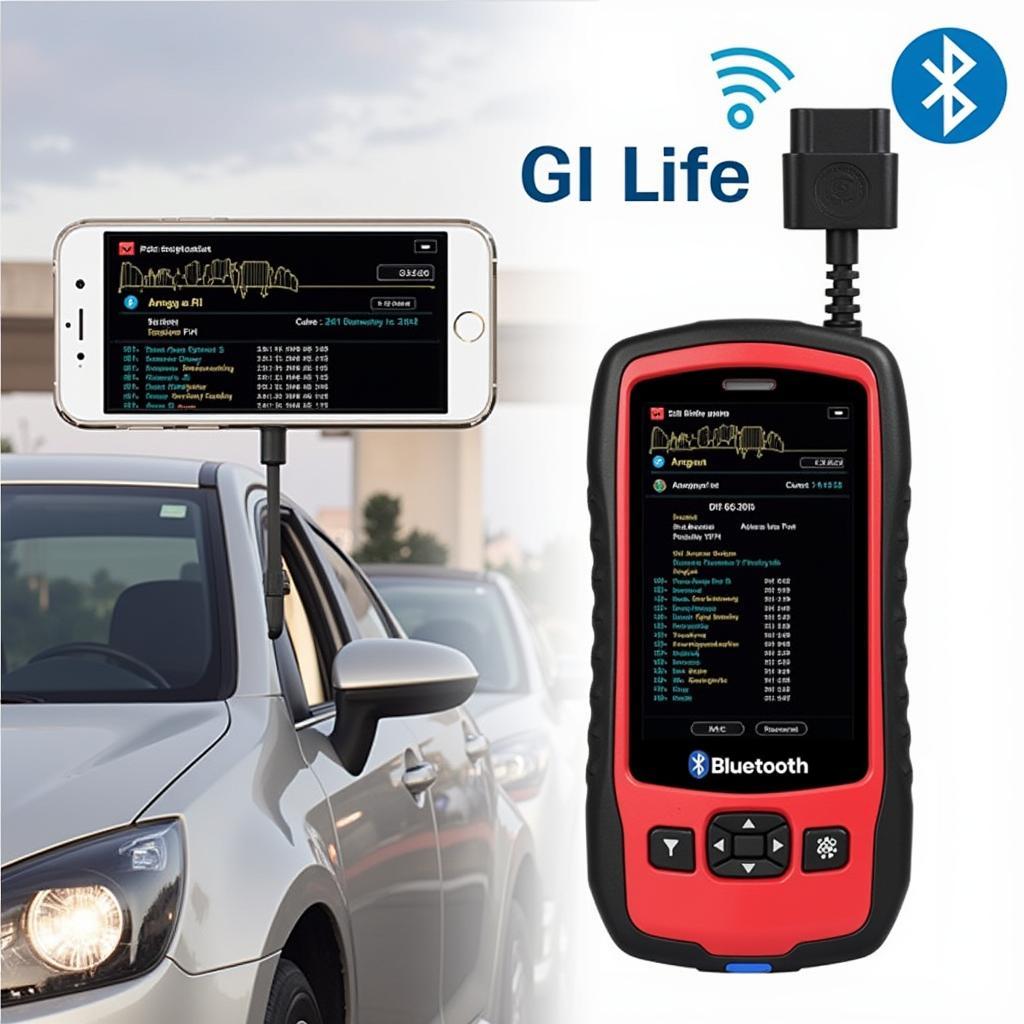
3 Responses